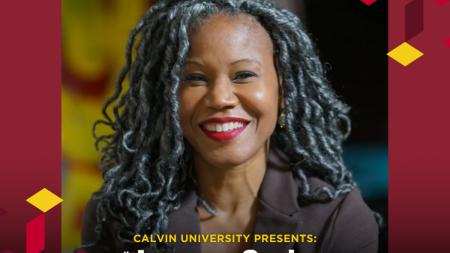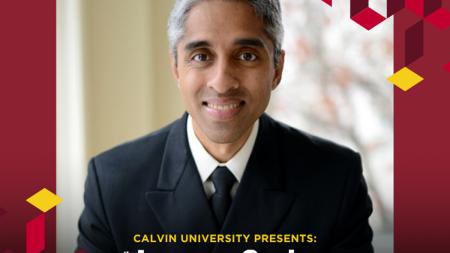When Spreadsheets Open Doors

This summer, Calvin University students Cora Vanden Heuvel and Ethan VanOrman are making phone calls, googling addresses, and verifying contact information. Each day, it’s a rinse and repeat. The goal? To update an Excel spreadsheet.
“It was kind of pitched to me as [part of] my role [in] quality assurance,” said Cora Vanden Heuvel, a senior social work major from Rockford, Mich.
VanOrman, a junior political science major from Grand Haven, Mich., and Vanden Heuvel admit that the work can become tedious at times. Even so, the “who” and the “why” behind the “what” in this project drive them to keep at it.
That’s because this project can literally help to redirect people’s lives. It’s a project that began in 2015 after a political science professor had a conversation at a church discussion group.
“A returning citizen joined us one evening, and I asked about the greatest challenges he faced when he got out of prison. He noted the nitty-gritty problem of tracking down where to find services; information was fragmented among a variety of groups, and those groups often didn’t know what others were doing,” said Kevin den Dulk, who is now the university’s associate provost. “I realized that was a problem we could tackle through some intrepid data-sleuthing and geographical work.”
So den Dulk pressed into the problem, found some helpful teammates in Calvin’s Graphic Information Systems (GIS) program, including professor Jason VanHorn and then-student Julie Bylsma, and the dream of finding a solution unfolded. Now, eight years later, the Returning Citizens Map is an application that includes 3,200 resources covering everything from housing to transportation, from employment to churches—providing returning citizens with a pathway to navigate how to meet their basic needs and discover opportunities.
“Re-entry is complicated, and the more information about the resources that are available and about what assets already exist are going to be helpful,” said Vanden Heuvel.
The mapping application allows returning citizens in all 83 Michigan counties to access all of the resources they need, wherever they are.
VanOrman said he was drawn to this work in part because of an internship he had last summer through a Calvin connection in the local public defender’s office. That experience inspired a passion in him for justice, especially at the community level.
“I started in the first part of the pipeline, [future inmates] come in, are jailed, and I would do the arraignment interviews with them,” said VanOrman of his summer internship experience. “Now I’m on the other side, seeing people come out of the pipeline, and I’m able to be involved in helping people . . . to get back into community so they can start contributing to the well-being of the community. I really enjoy this work more. I know the work I’m doing has an effect on people.”
Vanden Heuvel explained that she became interested in this project through relationships. During her freshman year, she said, Michael Duthler, a returning citizen, came and spoke in her social work class. She learned a lot about the impact of the criminal justice system and began to dig in. She joined the Calvin Peacemakers, developed relationships with returning citizens – and through it, she said, “I started to see the mess that is re-entry.”
VanOrman and Vanden Heuvel saw not only the problem but also how they could be part of discovering a path forward.
To date, about a dozen students and a few professors have worked on the mapping application, many through summer research experiences. While the project has come a long way in just eight years, literally spanning the state of Michigan, VanOrman and Vanden Heuvel have been working hard this summer to make sure every single name, address, and contact number are all updated so that returning citizens are best equipped to successfully navigate post-incarceration life.
“If one person uses this, gets connected to an employer, and finds a job or housing that could be the difference between their going back to jail or prison, that’s more than reason enough to keep doing this, to keep glued to the spreadsheet all day long,” said VanOrman.
“It’s why I’m a social work major; I want to do work that’s meaningful and makes a difference, even if I see very little of that happen,” said Vanden Heuvel. “I feel called to this work because of my faith. Looking outside and seeing the world and its brokenness and then being able to be part [of the] solution is a wonderful thing.”
And the two agree that this is just part of the solution. The problem is bigger, and the work must continue.
“People involved are excited about what this map provides,” said Vanden Heuvel, “but we’re eager to explore other opportunities to continue to provide broader support, and Calvin’s involvement so far in re-entry is a start.”


